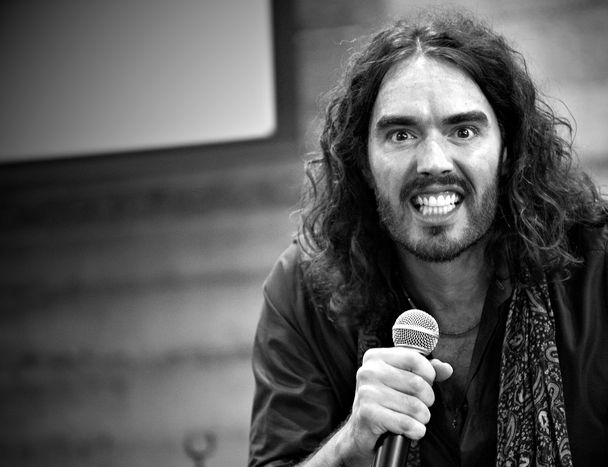
Russell's Wrong: Blame the public and the politicians for political disillusion
Published on
Disillusionment with politics is a problem throughout Europe. People are fed up with politics and for this they blame politicians. 'Corrupt, selfish liars' we cry over and over again. But is it not the responsibility of the public rather than the politicians to raise the level of debate and usher in a new era of political engagement?
The mantra that all politicians seem to orbit around is that incessantly irritating buzzword ‘change’. If voters are in a constant state of annoyance and delusion with the political status quo it seems that change would be the most logical place to rally potential recruits to a party’s political fight.
However, more than ever it seems, despite their most valiant efforts to show they are moving with the ages; politicians are forever critiqued in pubs, homes and long car journeys as morally reprehensible, corrupt, untrustworthy, stagnant and out-of-touch. In Britain the public have a chance to interact with politicians during the weekly BBC panel TV show ‘Question Time’. Citizens in other European countries would relish the chance to interact directly with politicians in such an environment, but the British public waste the opportunity on inanities.
What renders the show so tediously repetitive is as much the public’s one dimensional criticism of the politicians as the politicians themselves. There is often reference to the aforementioned sentiments and the ‘Political Class’, which has been fueled by the monster of the media. They portray politicians and the political class as a unilateral body, acting unanimously and accuse them of ignoring the desires of the electorate. ‘Argh, they’re all the same!’ ‘All politicians are liars!’ ‘They don’t represent the people!’
Russell Brand, armchair cynics and the dinosaur of european democracies
These inane and generic statements that people are all too ready to apply to ALL politicians have galvanized a visceral sentiment towards the political class. Dilettantes such as Russell Brand opine about the political system and gain considerable traction with disaffected young people. Over-zealous soundbites and lazy journalism have helped to turn the pitfalls of our political system into an ever widening chasm of apathy.
Public disillusionment with politicians is a pan-European problem, but in the UK frustration is further stoked by an electoral system which is riddled with flaws compared with other Western European nations. Britain is the dinosaur of European democracies. The British system is called ‘first past the post’. One MP is elected for each county. If the candidate you vote for is not elected, your vote is redundant, completely wasted. In the 2010 elections, 52.8% of votes were cast for losing candidates. In other words, more than half of the people who voted were not represented in parliament. Voter turnout is understandably low in the UK. In the last three elections, the UK has had an average turnout of 64.5%. In their last three elections, voter turnout has been 76% in Germany, 77% in Holland and 82.2% in Sweden. It seems the more proportional the system, the greater the choice on offer and the more motivated people are to vote.
HOW CAN WE CHANGE PEOPLE'S ATTITUDES
How can we override indiscriminate criticism of the political system? How can we change the attitude that we have towards politics in the UK and in the rest of Europe?
I should answer my self imposed question:
1. We need a robust media, one that is skeptical but not in a perpetual state of cynicism,one that doesn’t vilify politicians for the sake of it. It fosters a damaging attitude and puts the public off the idea that politics can make a difference to their lives. Displaying politicians as venal creatures, when they are not acting in such a manner, misrepresents them. Just because power can corrupt does not mean that it is always corrupting.
2. It goes without saying that people should be allowed to express themselves, but if proper debate was encouraged about a range of issues we would find that our attitude to politics would be greatly improved.
And therein lies the key, people claim not to care about politics; they claim that it makes no difference, but perhaps if there was some impartial and objective teaching about politics they would realise how immensely important the political process can be. Politics should be compulsory in all schools. Ingraining debate about the workings of our political system would be a way of overriding this rut we seem to have reached today.
This education could create a more active civil society and a better informed electorate. We should not underestimate the effect of engaging ourselves with the political process. A more politically astute and engaged electorate would further legitimise the choices that politicians make, and perhaps as an electorate we would make better choices.
These changes are vital. If we preserve the status quo we’ll have a whole new generation less engaged by democracy, eroding the very thing that so many in the past have fought for. By engaging people with politics again perhaps we can rid ourselves of the most generic and crippling criticism of all; ‘All politicians are the same.’



